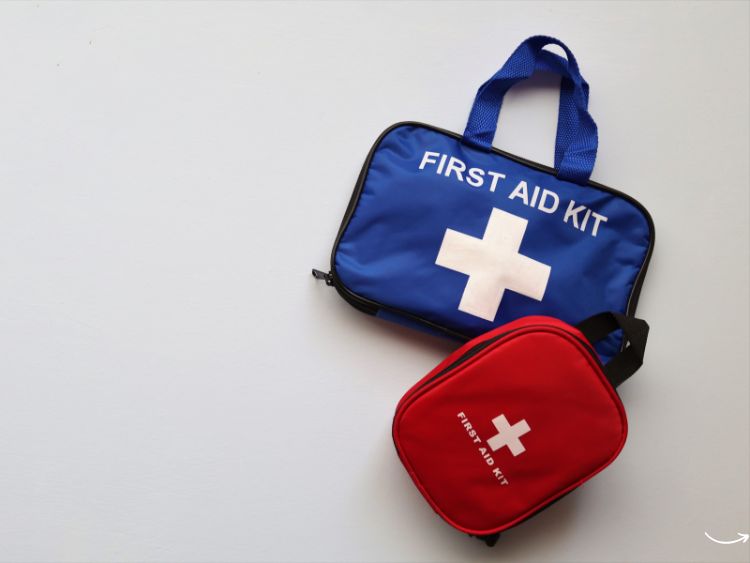What are anxiety disorders?
Anxiety about moving, starting a job or taking a test is normal. Although it is uncomfortable, this type of anxiety can motivate you to do better work and be more productive. Normal anxiety is a temporary feeling that does not disrupt your daily life.
Must Read: https://www.wayhealth.us/depression-and-anxiety/
An anxiety disorder can cause constant fear and panic attacks. It can be intense and even debilitating.
You may feel anxious and stop enjoying the things you love. Extreme cases may make it impossible to get in an elevator, cross the street or leave your house. The anxiety will only get worse if it is not treated.
Anxiety disorders are the most prevalent form of emotional disorder. They can affect anyone, at any age. According to the American Psychiatric Association (APA), anxiety disorders are more common in women than in men.
What are the different types of anxiety disorders?
Anxiety can be a major part of many disorders. These disorders include:
Panic disorder is a condition where you experience recurring panic attacks that occur at unanticipated times. Panic disorder can lead to panic attacks that are recurrent and unpredicted.
Never Miss: https://www.healthable.us/reduce-stress-and-anxiety/
- Phobia: Excessive fear of a particular object, situation, activity
- Social anxiety disorder: Extreme fear of being judged in social situations
- Obsessive-compulsive disorder (OCD): Recurrent irrational thoughts that cause you to engage in specific, repetitive behaviors
- Separation anxiety disorder: Fear of being away or from loved ones
- Anxiety about your health: formerly known as hypochondria, illness anxiety disorder is anxiety about your health
Post-traumatic stress disorder (PTSD), anxiety after traumatic events
What are the signs and symptoms of anxiety?
The person feeling anxiety will experience it differently. Anxiety can feel like a racing heart or butterflies in the stomach. It’s possible to feel disoriented, as if your mind and body are not in sync.
Anxiety can also be experienced through panic attacks, nightmares, panic attacks, or painful thoughts and memories you cannot control. A general feeling of anxiety and fear can be combined with a fear or concern about a particular place or event.
General anxiety symptoms include:
- Increased heart rate
- Rapid breathing
- Restlessness
- Trouble concentrating
- It is difficult to fall asleep
Anxiety symptoms can be completely different for you than someone else. It’s important that you understand all possible ways anxiety might manifest. Learn about all the possible anxiety symptoms.
What is an anxiety attack?
An anxiety attack can be described as a panic attack, which is an overwhelming feeling of worry, fear, distress, and apprehension. An anxiety attack can develop slowly for many people. As a stressful event nears, it can worsen.
Anxiety attacks may be different for everyone. The many symptoms of anxiety aren’t the same for everyone. They can also change over time.
An anxiety attack can be characterized by the following symptoms:
- Feeling dizzy or faint
- Breathing difficulty
- Dry mouth
- It is important to sweat
- Chills or hot flashes
- Be concerned and anxious
- Restlessness
- distress
- Fear
An anxiety attack and a panic attack have some similarities, but they are not the same thing. Find out more about the symptoms to determine if they are related.
Also Read: https://www.foodandfoodtrips.com/five-ways-to-hel…one-with-anxiety/
What causes anxiety?
Researchers aren’t sure what exactly causes anxiety. It is possible that a combination of factors plays a role in anxiety. These factors include brain chemistry and genetics.
Researchers believe that fear-controlling areas in the brain may also be affected.
The current research on anxiety is looking deeper at the parts and functions of the brain involved in anxiety. Find out more about the findings of these researchers.
Can anxiety be diagnosed with tests?
An anxiety diagnosis cannot be made with a single test. An anxiety diagnosis is not possible with a single test. Instead, it requires several physical exams, psychological questionnaires, and mental health evaluations.
A physical exam may be performed by some doctors to rule out any underlying medical conditions.
Your doctor can also use a variety of anxiety scales and tests to assess your anxiety. Learn more about each test.
What are the treatments for anxiety?
After you have been diagnosed with anxiety, it is possible to discuss treatment options with your doctor. Some people don’t need medical treatment. Lifestyle changes can be sufficient to manage the symptoms.
Treatment can be helpful in moderate and severe cases
Psychotherapy and medication are the two main methods of treating anxiety. Talking to a psychologist or therapist can help you to learn strategies and tools to manage anxiety.
If you are looking for a specialist in mental health, the Healthline FindCare tool will help you find one.
Most Popular: https://www.dailyhealthstudy.com/pain-near-the-hip-bone/
Antidepressants and sedatives are two of the most common medications used to treat anxiety. They balance brain chemistry and prevent anxiety episodes. Learn more about anxiety medications and the advantages and disadvantages of each type.


